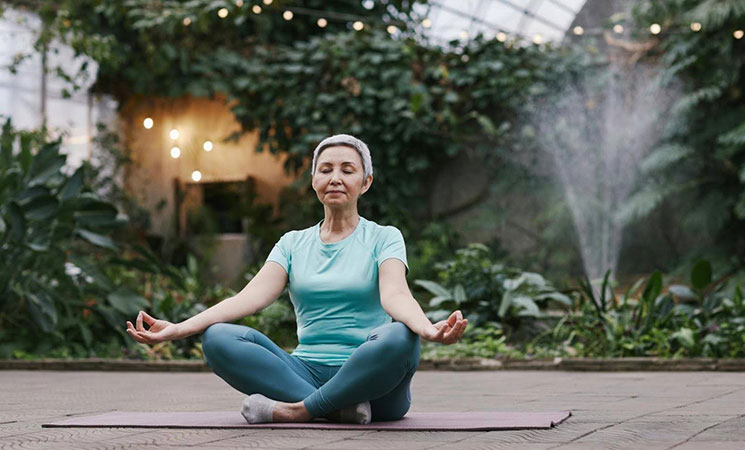Aging is a natural part of life, but how we age can be influenced by our choices. Maintaining a healthy lifestyle can significantly impact our physical, mental, and emotional well-being as we age. This article aims to provide practical tips for seniors to help them age healthily and enjoy a fulfilling life.
1. Get Regular Health Check-ups
Regular health check-ups are essential for early detection and management of potential health issues. As we age, the risk of developing chronic conditions increases, making it crucial to stay on top of our health. Seniors should schedule regular visits with their primary care physician and specialists as needed.
Routine screenings for blood pressure, cholesterol levels, diabetes, and bone density can help identify problems early when they are most treatable. Vaccinations, such as the flu shot and shingles vaccine, are also important to prevent common illnesses that can have more severe consequences in older adults.
During check-ups, it’s essential to discuss any new symptoms or changes in health. Seniors should feel empowered to ask questions and understand their treatment options. Keeping a list of medications and any allergies can help the doctor provide the best care possible. Nurses working with seniors can greatly benefit by enrolling in an online RN to BSN program. This degree program provides specialized knowledge in geriatric care and healthy aging strategies.
2. Stay Physically Active
Regular exercise is one of the most crucial components of healthy aging. Physical activity helps maintain mobility, strength, and mental health. For seniors, it’s essential to choose exercises that are both enjoyable and suitable for their fitness levels. Walking is an excellent option as it is low-impact and can be done almost anywhere. Swimming provides a full-body workout without putting stress on the joints, making it ideal for those with arthritis or other joint issues.
The benefits of staying active extend beyond physical health. Regular exercise can help improve mood, reduce the risk of chronic diseases such as heart disease and diabetes, and enhance cognitive function. Aim for at least 150 minutes of moderate-intensity aerobic activity each week, along with muscle-strengthening activities on two or more days a week.
3. Eat a Balanced Diet
Nutrition plays a vital role in how we age. A balanced diet provides the necessary nutrients to keep our bodies functioning optimally. Seniors should focus on consuming a variety of vegetables, fruits, whole grains, and lean proteins.
It’s also important to limit the intake of processed foods, sugar, and unhealthy fats. Seniors should also pay attention to their dietary fiber intake, which aids in digestion and can help prevent constipation. Incorporating foods like leafy greens, berries, nuts, seeds, and fish into the diet can support brain health and reduce inflammation.
4. Stay Hydrated
Hydration is crucial for maintaining health, yet it’s often overlooked. As we age, our sense of thirst diminishes, which can lead to dehydration. This can vary depending on individual needs, activity level, and weather conditions.
To ensure adequate hydration, keep a water bottle handy and sip regularly throughout the day. Drinking water-rich foods like fruits and vegetables can also contribute to hydration. Be mindful of beverages that can dehydrate, such as caffeinated drinks and alcohol. Recognizing the signs of dehydration, such as dry mouth, dark urine, and dizziness, is vital to prevent serious health issues.
5. Prioritize Mental Health
Mental health is as important as physical health, especially as we age. Engaging in activities that stimulate the mind can help maintain cognitive function and emotional well-being. Reading, solving puzzles, and playing games are excellent ways to keep the brain active.
Social interactions also play a crucial role in mental health. Participating in social activities, whether through community centers, clubs, or family gatherings, can reduce feelings of loneliness and depression. Additionally, practicing mindfulness and relaxation techniques, such as meditation or deep breathing exercises, can help manage stress and improve mental clarity.
For those struggling with mental health issues, seeking support from professionals or joining support groups can provide valuable assistance and companionship.
6. Maintain Social Connections
Maintaining social connections is vital for a fulfilling life. Social interactions help reduce loneliness, improve mood, and provide a sense of belonging. Staying connected can be achieved through various means, such as joining clubs, participating in community events, or simply spending time with family and friends.
Volunteering is another excellent way to stay engaged with the community while contributing to a cause. It provides a sense of purpose and can introduce new social networks. Using technology, such as video calls and social media, can help seniors stay in touch with loved ones, especially if they live far away.
7. Ensure a Safe Living Environment
Creating a safe living environment is crucial to prevent accidents and injuries, which can have serious repercussions for seniors. Falls are a leading cause of injury among older adults, making fall prevention a top priority.
Ensure that floors are free of clutter and that rugs are secured to prevent slipping. Install grab bars in the bathroom, particularly near the toilet and in the shower. Good lighting is essential, especially in hallways and staircases. Non-slip mats and sturdy handrails can provide additional safety.
In addition to fall prevention, seniors should also consider other safety measures, such as installing smoke and carbon monoxide detectors, ensuring easy access to emergency contact information, and keeping pathways clear for easy mobility.
Conclusion
Healthy aging involves a comprehensive approach that includes physical, mental, and social well-being. By staying proactive in managing health, creating a safe living environment, engaging in cognitive activities, managing stress, and ensuring quality sleep, seniors can enjoy a higher quality of life. These tips can help seniors age gracefully, maintaining their independence and vitality in their golden years. Taking small, consistent steps towards a healthier lifestyle can make a significant difference in the aging process, allowing seniors to enjoy their later years with confidence and joy.









